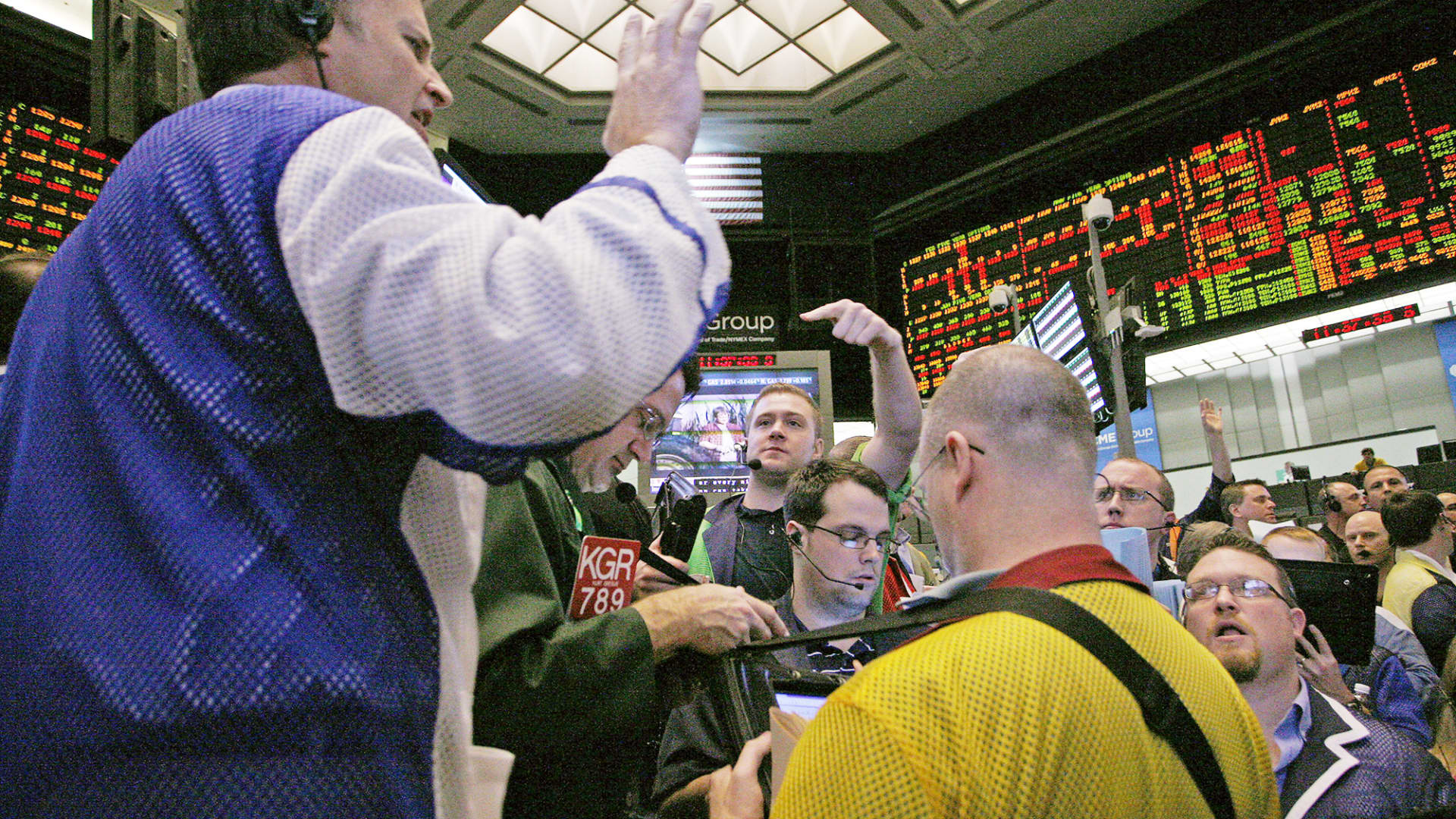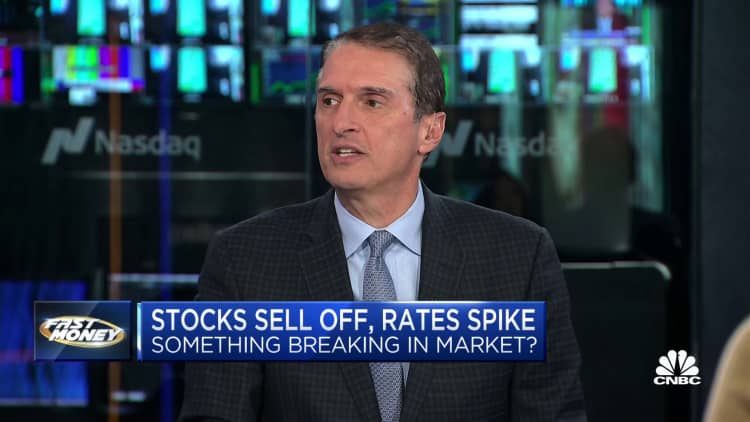

Wall Street forecaster Jim Bianco expects Treasury yields to go a lot higher — and possibly overshoot through 5% in the next couple of weeks.
“I don’t think we’re near the end of this move in the bond market,” the Bianco Research president told CNBC’s “Fast Money” on Tuesday.
If the Federal Reserve hints about ending interest rate hikes while investors still sense inflation, Bianco warns they won’t buy bonds.
“That’s what I think has been killing the bond market,” he said. “The more the Fed talks about being done, waiting [and] assessing all the rate hikes they’ve done — the more that they’re making it worse.”
Yields on the 5-year and 10-year Treasury notes, as well as the 30-year Treasury bond, hit their highest levels since 2007. The 10-year Treasury yield reached 4.8% on Tuesday. Bianco sees 4.5% as fair value.
“We’re just a little bit above fair value right now. I think what you see in the bond market is a capitulation,” noted Bianco. “Most of the year bond investors [and] bond managers have been long. They’ve been trying to argue why we’re going to have a recession. Why there’s going to be a rally. And, they’ve been getting their brains beat in, and they can’t take it anymore.”
The volatility in the bond market is extending to stocks. The Dow Jones Industrial Average saw its worst daily performance since March and is now negative for the year. The S&P 500 and the Nasdaq Composite also closed the day more than 1% lower.
The latest jitters over surging yields come a day after CNBC on-air editor Rick Santelli delivered a warning to investors on “Fast Money.”
“We have a lot of potential room to run to the upside,” Santelli said on Monday. “If somebody asked me and held a gun to my head and said ‘listen, [in] the worst-case scenario, where are Treasury rates going to go? 10-year?’ I’d say in the next seven years, you should be able to see 13.5%, 14%.”
Bianco considers yields that high an extreme situation. “13%? That would take something bad to happen — a lot worse than I anticipate,” he said.







